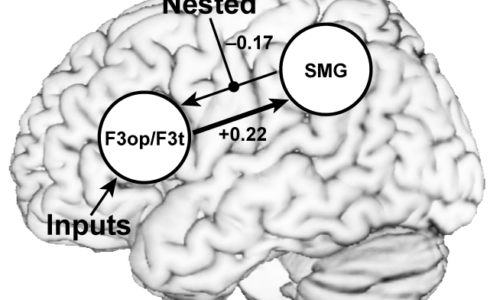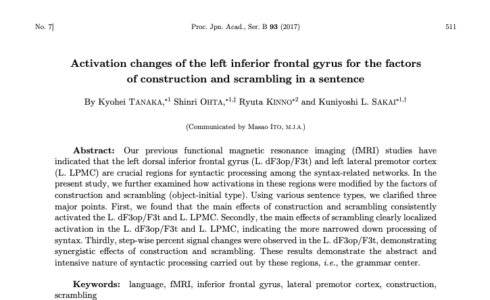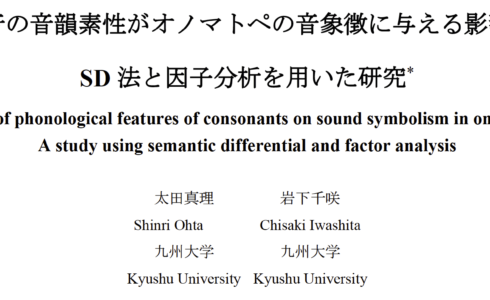Yamaguchi & Ohta (2023) Frontiers in Language Sciences
Yamaguchi, K. & Ohta, S., “Dissociating the processing of empty categories in raising and control sentences: A self-paced reading study in Japanese,” Frontiers in Language Sciences, 2, 1138749, 2023. doi: 10.3389/flang.2023.1138749
Introduction: Theoretical linguistics has proposed different types of empty categories (ECs), i.e., unpronounced words with syntactic characteristics. ECs are a key to elucidating the computational system of syntax, algorithms of language processing, and their neural implementation. Here we examined the distinction between raising and control sentences in Japanese and whether ECs are psychologically real.
Methods: We recruited 254 native speakers of Japanese in the present internet-based experiment. We used a self-paced reading and a probe recognition priming technique. To investigate whether raising and control sentences have different ECs (i.e., Copy and PRO) and whether these ECs cause a reactivation effect, behavioral data were analyzed using linear mixed-effects models.
Results: We found two striking results. First, we demonstrate that the reading times of raising and control sentences in Japanese were better explained by the linear mixed-effects model considering the differences of ECs, i.e., Copy and PRO. Secondly, we found a significant reactivation effect for raising and control sentences, which have ECs, and reflexive sentences without ECs. These results indicate that ECs are processed similarly to reflexive pronouns (e.g., himself ).
Discussion: Based on these results, we conclude that raising and control sentences in Japanese have different ECs, i.e., Copy and PRO, and that ECs have psychological reality. Our results demonstrate that behavioral experiment based on theoretical linguistics, which is the first step for developing linking hypotheses connecting theoretical linguistics and experimental neuroscience, is indeed necessary for testing hypotheses proposed in theoretical linguistics.
This research was supported by JST SPRING Grant No. JPMJSP2136 (to KY) and by MEXT/JSPS KAKENHI (Grant Nos. JP19H01256, JP21K18560, JP17H06379, JP19H05589, and JP23H05493), a Grant for Basic Science Research Projects from the Sumitomo Foundation, a Research Grant from the Yoshida Foundation for the Promotion of Learning and Education, and the QR Program and SENTAN-Q Program from Kyushu University (to SO).







